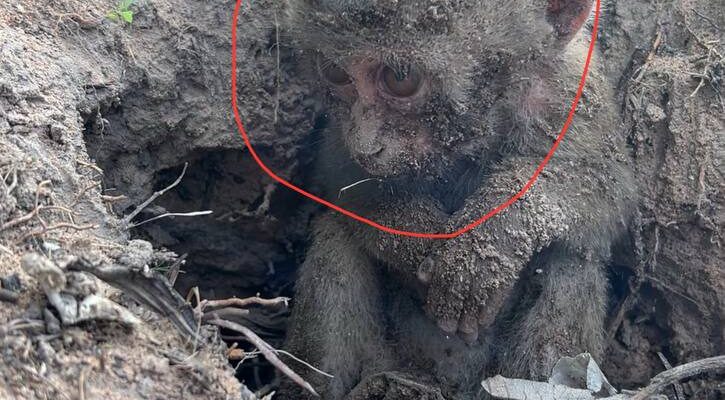In the heart of the jungle, where the trees whisper stories of life and loss, a tiny baby monkey clings to a branch, trembling and confused. Just days ago, he nestled safely in his mother’s arms, his tiny fingers entwined in her fur, his needs met with warmth and care. But nature can be cruel, and now he is alone — no mother, no milk, and no idea where to go.
The loss of a mother is devastating for any young animal, but for a baby monkey, it’s a life-or-death situation. Unlike many animals that are born more self-sufficient, monkeys rely on their mothers not just for food but for protection, comfort, and social learning. Without her, the baby is suddenly exposed to a world that is not only unfamiliar but also dangerous.
This little monkey, no more than a few weeks old, doesn’t understand why his mother doesn’t return. He calls out in soft, high-pitched cries that echo through the trees. Sometimes, another monkey passes nearby and looks, but none stop. In a wild troop, instincts often dictate behavior — and unfortunately, adoption is rare. Without intervention, his chances of survival are slim.
Without milk, the baby monkey becomes weaker with each passing day. His body, still dependent on the rich nutrients of his mother’s milk, cannot process adult food yet. Dehydration and malnutrition begin to set in. His bright eyes dim. He curls up in the crook of a tree, instinctively seeking warmth, but there is none to be found.
Stories like this play out in forests all over the world — sometimes due to predators, poaching, deforestation, or natural accidents. While nature has its own rhythms and cycles, human impact has made such tragedies more frequent. When a mother is killed for bushmeat or the illegal wildlife trade, her baby is often left behind, terrified and doomed unless rescued.
In some fortunate cases, wildlife rehabilitation centers find these orphans in time. Dedicated caretakers feed them milk formula, wrap them in warm blankets, and gradually reintroduce them to a more natural environment. It’s a long process — emotionally and physically demanding — but it offers hope.
This baby monkey’s story is a quiet reminder of the delicate balance of life in the wild and the consequences when that balance is disrupted. His loneliness, hunger, and confusion speak not only to the heartbreak of one tiny life but to the larger issue of how fragile wildlife communities truly are.
As we read about his plight, let us not turn away. Instead, let his small, trembling hands serve as a call to protect and preserve the forests and the lives within them. For every orphaned baby monkey, there is a chance — however small — for compassion, intervention, and change.



